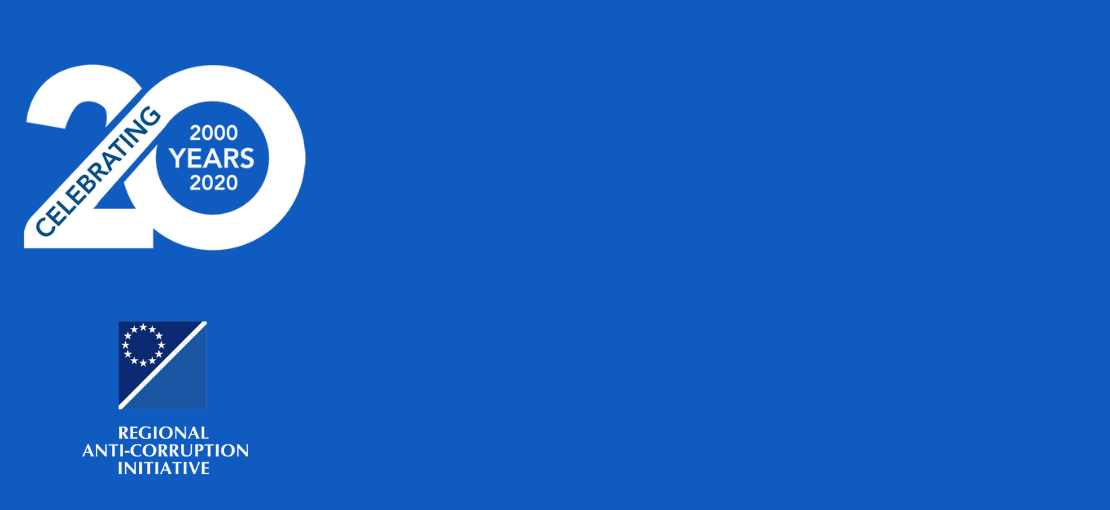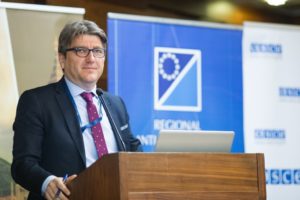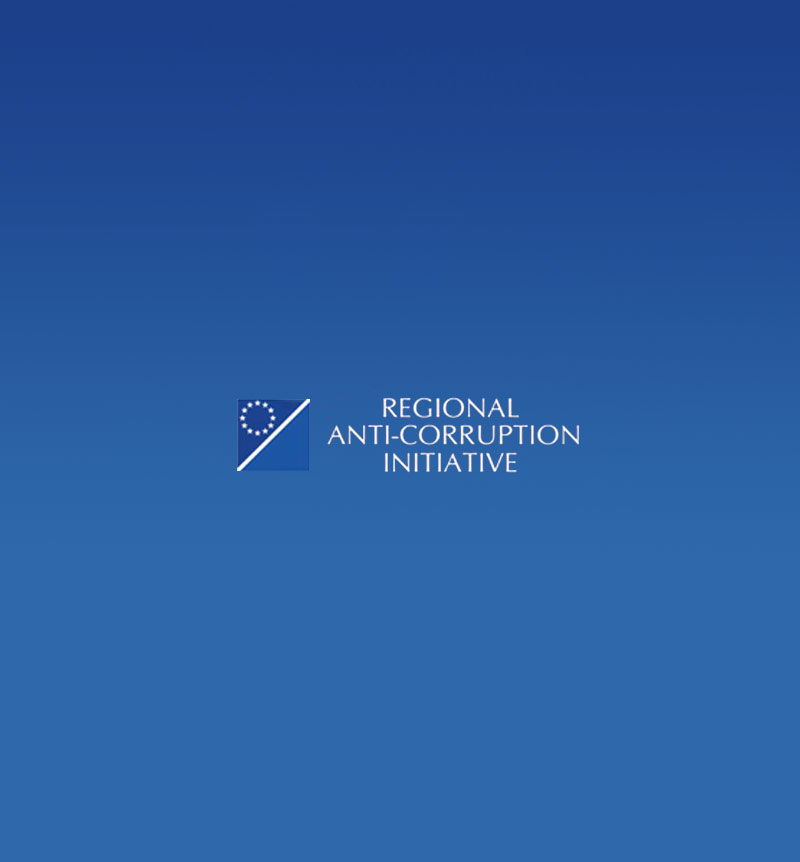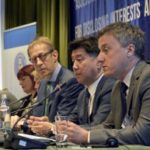- December 30, 2020
- Posted by: Elvir Salcinovic
- Category: RAI News

Regional Anti-corruption Initiative (RAI), the organization that leads the regional cooperation to support anti-corruption efforts by providing a common platform for discussions through sharing knowledge and best practices is celebrating its 20th anniversary this year. On this occasion, this year has been used to reflect upon the years that are behind us, learn and draw lessons and make ambitious plans for the next RAI’s decade.
The importance of the RAI’s mission is now more visible than ever, as the widespread corruption in the region is among the key challenges. Corruption is a phenomenon no society is immune to. In the countries of South East Europe (SEE) there is hardly any segment of life where corruption failed to show its face. Countries in transition, faced with socio-economic and political changes appear to be particularly vulnerable to it. Simultaneously, the common priority of EU integration requires systematic addressing of corruption as a high-ranked item on the pre-accession agenda.

In parallel to national efforts in the region to tackle the corruption, there is also a regional dimension to it. Regional cooperation in anti-corruption was initially established in 2000 in Sarajevo as Stability Pact Anti-corruption Initiative, known as SPAI. “At the time of SPAI establishment, the anti-corruption bodies and a number of anti-corruption tools that would help tackle corruption simply did not exist. Twenty years ago, the SEE region started with building their anti-corruption capacities through introducing new anti-corruption legislative framework and establishing independent anti-corruption agencies in line with international anti-corruption documents”, recalls Mr. Vladan Joksimovic, Head of RAI Secretariat.

Through the years, the cooperation has changed, but activities were always directed towards supporting member countries in setting up their institutional and legal frameworks for fight against corruption. In autumn of 2003, the SPAI Steering Group approved the transfer of the Secretariat to the region, in order to promote regional ownership of SPAI and to further enhance local capacities to lead the fight against corruption in the SEE. By having the Secretariat based in Sarajevo, the organization got an executive body which is, until date, the only center in the SEE devoted solely to curb corruption at a regional level.
The precondition for building RAI into a key anti-corruption stakeholder in the SEE was transformation of the Initiative toward a full regional ownership and leadership of the 9 SEE states and ensuring the financial sustainability of the Secretariat. This was achieved by signing the Memorandum of Understanding concerning cooperation in fighting corruption through RAI in 2007, and the Protocol amending the MoU in 2013”, emphasizes Mr. Davor Dubravica, the Chairperson of RAI from 2011 until 2018.

This institutionalization enabled RAI to systematically and professionally monitor the situation in the region regarding corruption, to further the consultations with its member states, thus enabling the key goals embedded in their anti-corruption strategies to drive the RAI core strategic directions. This demand-driven multidisciplinary approach to fighting corruption provided for incorporating issues such as the adoption of international legal instruments, promotion of good governance, strengthening the rule of law, promotion of transparency and integrity and development of an active civil society.
With member countries being at different levels of development, going through various transition phases through time, RAI had to grow and build synergies. Regardless of what activity was implemented, there were two key traits that were common for all of them – cooperation and networking. “Cooperation is the essence of RAI”, reiterates Mr. Dubravica. “It helped us learn from each other, exchange good practice and work together to achieve our mutual goal – that our countries further improve the rule of law, safe investments in our economies and that our societies become better ones”. By conducting various training programs for experts from member states and establishing networks between anti-corruption bodies and practitioners in various anti-corruption areas, RAI provides opportunities to establish cooperation, exchange experiences and ideas, discuss professional challenges and ways to overcome them.

In 2005, the now traditional, RAI’s Summer School for Junior Anti-Corruption Practitioners in SEE was ‘born’ as a learning and social connectivity platform for young practitioners, becoming a well-recognized symbol of RAI throughout the SEE region. A total of 15 Summer School editions connected more than 400 participants and 100 lecturers until date, establishing the grounds for mobilization of youth in raising a new generation of anti-corruption experts in the SEE and strengthening the integrity culture among the future decision makers of the SEE.“

We have been enthusiastic contributors to a number of RAI events across the region and have been proud to uphold RAI’s morals, ethics and principles in the fight again corruption”, remembers Mr. Lawrence Day, the CEO of AML Consulting who, together with numerous experts, has been a part of the RAI training programme since 2013. “Each year we have designed inputs to challenge the participants who have always shown a high level of commitment, dedication and enthusiasm for the events. Following the completion of every event, we felt confident that we had imparted some new skills which they could use in their workplace and to this day I remain in personal contact with many of these colleagues and have witnessed their success as a result of the support offered through the RAI.”
But, RAI did not do all this alone. Throughout years, we have invested ourselves into establishment of partnership with all relevant European and global organizations working in the field of anti-corruption which has resulted in a number of jointly implemented projects and events. Some of them include UNODC, GRECO and OECD. With the UNODC, RAI Secretariat has established a particularly fruitful partnership through which the organizations have jointly accomplished a wide range of results involving 23 ministries and anti-corruption bodies and 57 CSOs.

“Since 2015, UNODC’s Civil Society Unit has partnered with RAI to promote the United Nations Convention against Corruption (UNCAC), the only internationally binding anti-corruption instrument. Focusing on Articles 12 and 13 that recognise the role of the private sector and civil society in combating corruption we brought together the practitioners, civil society and businesses in the region for a dialogue on integrity and foster the awareness on the implementation of the Convention” said Ms. Mirella Dummar Frahi, Team Leader of UNODC’s Civil Society Team.
The Regional Programme supported by the Austrian Development Cooperation that embodied this partnership allowed RAI to bring the governments of the SEE region together in negotiating the International Treaty on Exchange of Data for the Verification of Asset Declarations, “as the first mechanism of this kind in the world”, as pointed out by Mr. Dubravica. The International Treaty, whose signature has been postponed due to pandemic outbreak, is a result of the years of hard work, and represents a true symbol of a successful regional cooperation, partnership and advocacy.

Outlining the achievements of RAI, Mr. Marin Mrcela, President of GRECO, has also emphasized the importance of the Treaty: “It is of the utmost priority for the states in the region to join the International Treaty on Exchange of Data for the Verification of Asset Declarations and ensure its effective implementation through the development of the regional mechanism for exchange of data among the anti-corruption authorities. This will be a strong tool for disclosure of conflict of interests and illegal enrichment and for the promotion of integrity among public officials. This mechanism will also push the states concerned to implement GRECO’s recommendations towards the development of an efficient, credible and independent national asset disclosure system.”
Cooperation, networking and efforts in finding and establishing synergies helped RAI become recognized by its member states and the international community as a key anti-corruption stakeholder, and a central place of cooperation in the fight against corruption in the SEE, as well as a reliable partner for successful implementation of donor-funded regional projects.

Through time, RAI has expanded its scope of activities towards designing more achievable and measurable objectives and advancing its own organizational accountability and visibility. In line with the new social, political and technological trends, and especially the COVID-19 crisis, RAI will continue enhancing the regional cooperation in the narrow thematic fields where an outstanding expertise has been developed, by means of the new coordination tools and mechanisms, outlines Mr. Joksimovic. RAI recognized the current pandemic situation, not only as an unprecedented event in the newer history, but also as an opportunity for organizational growth and establishment of different methods of networking, knowledge sharing and exchange of experience. By accepting the new reality, RAI embraced the shift in its operations as not only a short-term fix, but the approach to establishing a robust capacity building delivery mechanism in the medium-term.
To this end, RAI is working to establish an online education platform to support and boost the process of learning, teleworking, knowledge sharing, rapid exchange of information and connectivity in the field of anti-corruption. The platform should be an open-source hub where practitioners can share knowledge and experience, but also a place where any person can learn more on different anti-corruption topics.

In addressing the vision of RAI’s future, Ms. Laura Stefan, RAI Chairperson highlighted that RAI has become what it is today based on the deep conviction of its member states that “sustainable improvements in the integrity policies can only be achieved together”. She also highlighted that RAI is first and foremost a space of trust where peers can openly discuss challenges and explore ways to overcome them, share best practices and talk about hurdles encountered in the implementation of anticorruption policies. “RAI is now reaching its maturity phase and has positioned itself as a trustworthy partner in the international arena. In the years to come I believe RAI will boost its profile of a regional organization that is pioneering new mechanisms of cooperation between various jurisdictions”, Ms. Stefan concluded.
Relying on dedication and support of its members and partners, RAI will continue reinforcing the existing and building the new partnerships with activists, civil society actors, private sector, academia and youth through a broad anti-corruption knowledge platform, as well as raise the public awareness on the anti-corruption incentives, through traditional and the new media.
 “While aware of the length and obstacles of the anti-corruption path, RAI strongly relies on the joint commitment and the readiness of the SEE countries to achieve tangible results in the coming years. Confident in its robust, yet flexible network, strong partnerships and a tireless team, RAI will continue making consistent steps stemming from its programmatic commitments, and will continue to drive a sustainable change in prevention and fight against corruption, as well as in promoting the new norms of the individual and institutional integrity in the SEE and beyond”, concludes Mr. Joksimovic.
“While aware of the length and obstacles of the anti-corruption path, RAI strongly relies on the joint commitment and the readiness of the SEE countries to achieve tangible results in the coming years. Confident in its robust, yet flexible network, strong partnerships and a tireless team, RAI will continue making consistent steps stemming from its programmatic commitments, and will continue to drive a sustainable change in prevention and fight against corruption, as well as in promoting the new norms of the individual and institutional integrity in the SEE and beyond”, concludes Mr. Joksimovic.
With this, we are expressing deep gratitude to every individual and organization who have contributed to the work and growth of RAI over the past two decades and we hope to continue with even greater enthusiasm.
Quintessentially, for the past two decades, RAI has lived and will continue embodying its motto:
“We look for better solutions together.”













































